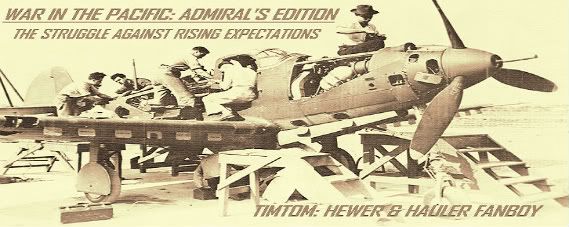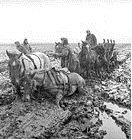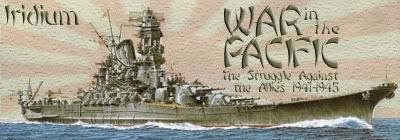Rasputitsa
Posts: 2903
Joined: 6/30/2001
From: Bedfordshire UK
Status: offline

|
quote:
ORIGINAL: Ambassador
There's another question to solve, too.
In such conditions, is it not more plausible that Britain would have sought a negociated armistice ? Would William Donovan still have reported to Roosevelt an optimistic assessment of the british situation ?
A successful invasion of Great Britain would not have been guaranteed once the RAF and RN were brushed aside (complete destruction is not realistic), but it still meant bigger losses for the UK, maybe it would have been enough, combined with lesser prospects of getting USA's help, for Winston (or a replacement...) to accept a negociated settlement.
So, even if all conditions for attempting Sealion were met, there're still some doubts that it would have been necessary...
Discuss.
This is a much more difficult issue, as there is very little evidence in the public domain and all the senior players are dead, having not revealed any major secrets. Winston Churchill was adamant that Britain should fight and strangely, having been an arch imperialist, ensured that the war would proceed, which led to the emptying of the British treasury, destruction of much of our industry and housing and the eventual dismantling the Empire after the War. There were reported to be elements including the other prospective wartime prime minister, Lord Halifax, who thought that to avoid these costs Britain should seek a negotiated settlement. The abdicated King Edward VIII, then Duke of Windsor, was implicated as a possible replacement monarch, after such a settlement. Did Rudolph Hess fly to Scotland as part of this process, why was he alone held in Spandau until death, or murder, when he was not part of the worst Nazi attrocities in the later part of the war.
The British are often depicted by Hollywood as useless tea drinkers getting in the way of fighting the War, but this is not the case. In 1939 Britain was getting ready, albeit nearly too late, to wholeheartedly confront the totalitarian dictatorships. There were only a handfull of demoracies in the World in 1939 and by 1940 several of them had been occupied. The USA was trying to maintain an uncomfortable neutrality. Britain was prepared to confront Germany and Italy, with Japan and possibily Spain in the wings and if that were not enough, was preparing to take on Russia as well, to help Finland in 1940. The landing force that attempted to save Norway was hampered, as the ships were loaded for the expedition to help Finland. The force had the wrong material, loaded in the wrong ships, for the revised units. No sign of backing down at this stage and this is with Neville Chamberlain (forever marked as an appeaser) still prime minister.
On the opening of the War, plans were enacted to move 3 million people out of the major cities, although only half agreed to go, this major movement was complete as the declaration of war was issued to Germany. All this indicates that the British Government fully understood the gravity of the situation and was prepared to take any action. There is no indication that they intended to talk their way out, Britain meant business. The time for talking ended at Munich.
Did the defeat of France change their minds, I don't think so. There was a curious relief that Britain was now alone and the country willingly accepted laws and controls needed for the war effort, which would put many dictatorships to shame. Germany did not invoke a 'Total War' economy until 1943, way too late.
There is evidence that Italy offered to help start negotiations, but they could not get even to the point of asking for the possible terms, as that might be seen as weakness and embolden Hitler. Churchill was playing for a win and not interested in a draw.
Could Churchill have been overthrown to permit negotiations. After the ship of state had been set on a course for victory, or nothing, it is difficult to see how any group, or individual, could have changed that course, any more than any group could have done the same thing in Germany.
 
|
 Printable Version
Printable Version





























 New Messages
New Messages No New Messages
No New Messages Hot Topic w/ New Messages
Hot Topic w/ New Messages Hot Topic w/o New Messages
Hot Topic w/o New Messages Locked w/ New Messages
Locked w/ New Messages Locked w/o New Messages
Locked w/o New Messages Post New Thread
Post New Thread